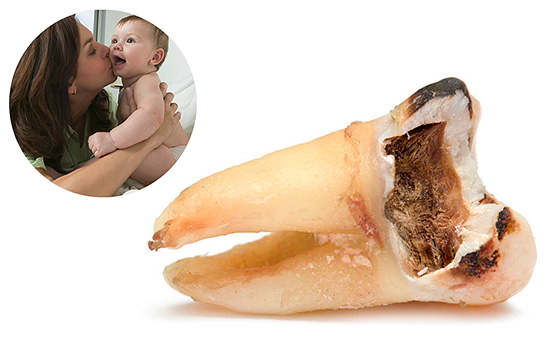
It is widely known that the main factors in the development of caries include poor oral hygiene, as well as a lack of calcium, phosphorus and fluoride in the body, which are the main building blocks of tooth hard tissues. However, there is also an opinion that caries is transmitted through a kiss and they can literally be infected from another person.
Is it really so, is caries contagious or is it a myth - let's try to understand these issues in more detail ...
To begin with, the root causes of carious changes are really directly related to biochemical processes occurring under plaque and in its volume due to the activity of microorganisms. The presence of a huge number of bacteria in plaque leads to the active fermentation of carbohydrates (for example, sugar), which turn into organic acids. Under the influence of acids, the pH on the surface of the tooth enamel decreases and its demineralization occurs - in other words, the washing out of tooth enamel of calcium and phosphorus.
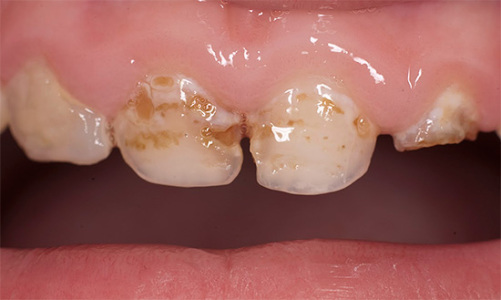
As a result, we come to the preliminary conclusion that caries is actually directly related to the vital activity of bacteria. And if so, the logical question arises: is caries contagious and can it be transmitted through a kiss?
Is caries contagious?
Studies have shown that Streptococcus mutans bacteria have the greatest cariogenic activity in the microflora of the oral cavity. This is one of the few specialized microorganisms (along with Streptococcus sobrinus, for example) that have special formations on the cell wall that provide strong attachment to tooth enamel - the so-called receptors.
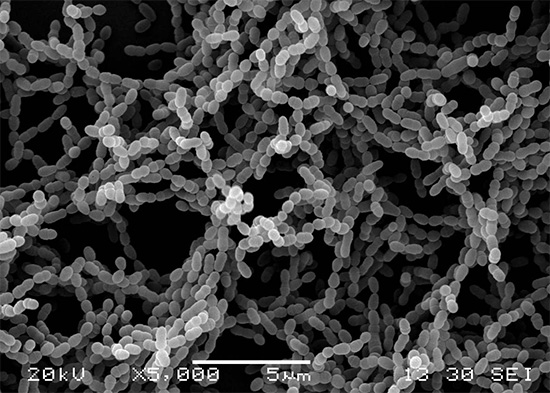
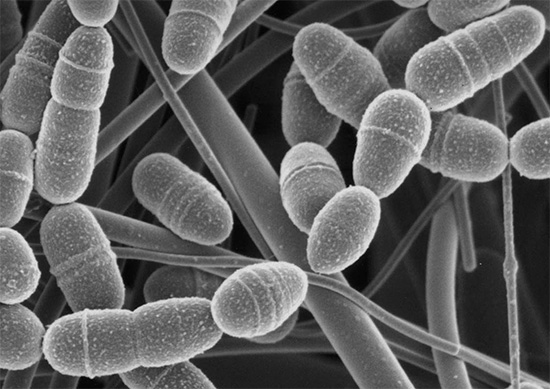
It has also been reliably established that Streptococcus mutans can be transmitted by kiss, for example, from parents to children. They are also transmitted from adult to adult, but this is not so critical, as will be discussed below.
It is interesting
Streptococcus mutans is a gram-positive anaerobic bacterium that converts sucrose into lactic acid. In addition to this splitting of sucrose, the bacterium also synthesizes an extracellular polysaccharide, which is close in chemical nature to dextrans, is an adhesive compound from which plaque is formed. Interestingly, sucrose is the only carbohydrate from which the microorganism is able to create this polysaccharide.
However, do not be too scared, seriously fearing contracting caries through a kiss. If you are more than 3 years old, then in your oral cavity for a long time there are these same cryogenic bacteria that are present in the mouth of almost every adult.
It’s another matter that their destructive activity with respect to tooth enamel can manifest itself stronger in someone, and in someone weaker - depending on many factors. For example, whether a person brushes his teeth regularly, how much sugar he consumes, whether there is enough calcium in his diet.
But the parents may well “pass the caries” to the child through a kiss: the infection of the children with the above bacteria usually occurs when the child is 1-3 years old.
The danger of infecting children with caries through a kiss by their parents
First of all, it is worth noting that caries is a pathological process leading to the destruction of hard tooth tissues. You can only be infected with a bacterium, but not with caries, because it is far from a fact that a carious cavity will form in the tooth as a result of the vital activity of the microorganism.
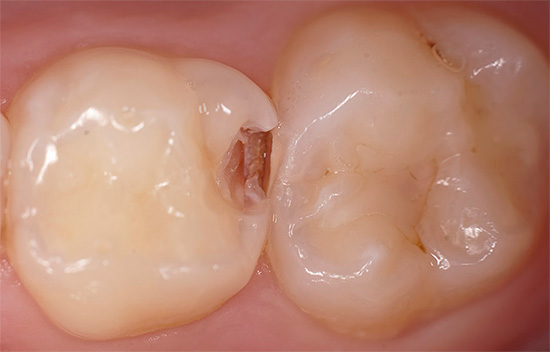
In other words, it is important to keep in mind that such a concept as “caries infection” is a great simplification, bordering on absurdity from the point of view of a professional dentist.However, since such terminology is quite understandable and close to an ordinary person, it is in this simplified understanding that we will continue to talk about “caries infection”.
So, is caries transmitted through a kiss from parents who are carriers of Streptococcus mutans in the oral cavity to small children who do not already have this bacterium? The answer is clear: yes, it is transmitted. But how dangerous is this? .. Sooner or later, infection will happen anyway.
This is where the whole essence of the problem lies - better later than before. Let's see why late bacterial infection is less dangerous:
- an older child can already take solid food (which itself, to a certain extent, mechanically cleans plaque);
- children already have a habit of brushing their teeth and rinsing their mouth after eating;
- a normal salivary buffer capacity (ability to neutralize acid) is established, immunoglobulins and other caries protection factors appear in saliva.
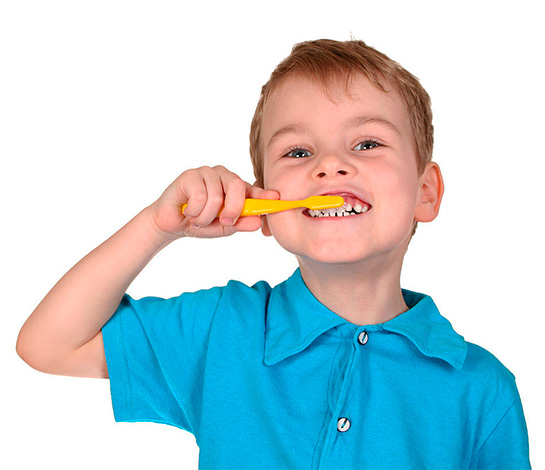
In other words, the later the baby gets acquainted with carious bacteria, the better it will be for his newly formed milk teeth.
It should be understood that caries is not as contagious (contagious) as, for example, the influenza virus or chickenpox. You can not be afraid to infect the baby with them by airborne droplets. But you can infect, for example, through kisses, or licking a spoon of a child, or if you try tea from his mug.
On a note
Just a few minutes after eating sugar-rich food, under the influence of acid-forming streptococci and lactobacilli, the pH of the medium on the surface of the teeth decreases from about 6 to 4. Moreover, in addition to lactic acid, formic, propionic, butyric and some others are also formed.
The destruction of enamel begins already at pH 4.5, and at 4 it accelerates even more. Tooth enamel, consisting of approximately 96% of minerals, actively loses calcium.
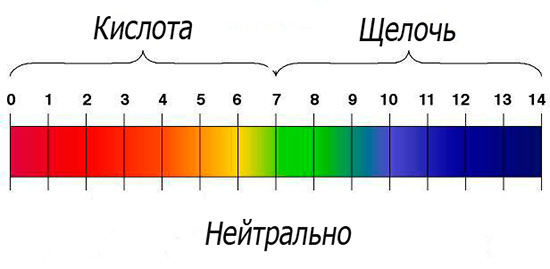
What can be done to prevent a child from getting caries from mom, dad or grandmother?
To protect your baby from too early exposure to the bacteria responsible for tooth decay, you need not so much - observe basic hygiene rules:
- no need to eat from the baby’s spoon (sometimes parents first try the food themselves, checking its temperature, and then they feed it with the same spoon);
- if the nipple fell or just got dirty, it needs to be washed and not licked (also a common situation);
- ideally, the child should have their own tableware - a mug, plate, spoon;
- and even more so, the child should have its own toothbrush, which is not used by other, older children.
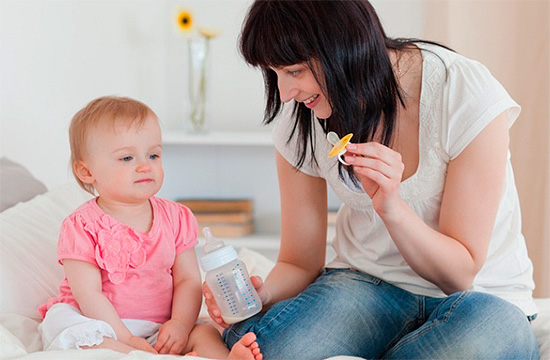
Feedback:
“Caries is an infection, and it’s very contagious, because it’s harmful bacteria. That's why, mummies, you don’t need to lick the baby's nipple - you are launching your carious monsters in this poor baby mouth in this way. And then you are still surprised that the baby’s milk teeth are all caries and black. ”
Marina, Moscow
However, in your attempt not to pass on the caries, caries should not go to extremes. For example, you don’t need to process the baby’s dishes or his nipple with alcohol or hydrogen peroxide each time, you should not forbid grandparents to communicate with him, even if they have some problems with their teeth.
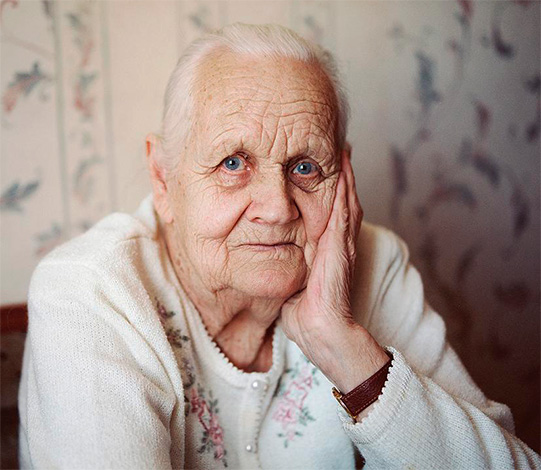
Remember that even if the corresponding bacteria in the child’s oral cavity appear, it’s far from the fact that this will lead to caries. As noted above, there are many factors that cause tooth decay, and the presence of carious bacteria is just one of them. A much more important factor is improper dental care or lack thereof.
Is it possible to get caries through someone else's toothbrush
Now that you already imagine that caries is not transmitted through a kiss (with the exception of the above nuances in relation to young children), the question of the possibility of infection with caries by using someone else's toothbrush is also being clarified.That is, it is theoretically possible to “pick up” a living bacterium, but for an adult who has long had the most carious bacteria in his mouth, this will mean nothing.
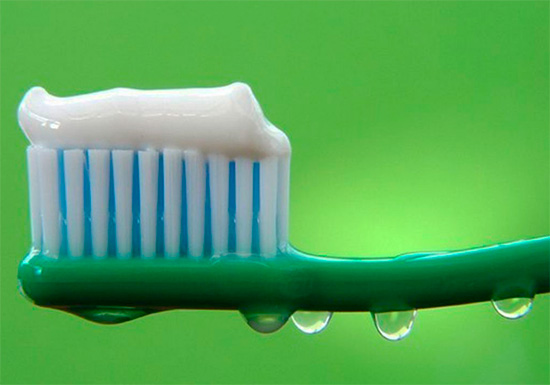
Another thing is that in addition to the relatively harmless Streptococcus mutans, there can be much more dangerous bacteria or viruses on someone else's toothbrush ...
Feedback:
“Maybe it looks absurd, but I accidentally, without looking, brushed my teeth with someone else's toothbrush! Just in the morning in a hurry and grabbed a brush, as it turned out later, from her mother-in-law (she has it almost the same as mine). It seems that she does not have terrible infections, such as AIDS, hepatitis, tuberculosis, syphilis, etc. And she is such a pretty positive overall elderly woman. Now, to the fact that I’m just unpleasant that it happened so terribly, I’m afraid that all of a sudden I got infected with something ... She, it seems, had something with oncology, although relatives told me that this was not transmitted. I want to ask, what do you think, do I need to take some tests now? .. ”
Sagalova Daria, Kryvyi Rih
In the above-mentioned review, of course, a rather comical situation is described, and something is unlikely to threaten the girl. However, each member of the family should have their own toothbrush. Using someone else's toothbrush is unacceptable, and not at all from the point of view of possible caries infection (this is impossible), but from general hygiene considerations.
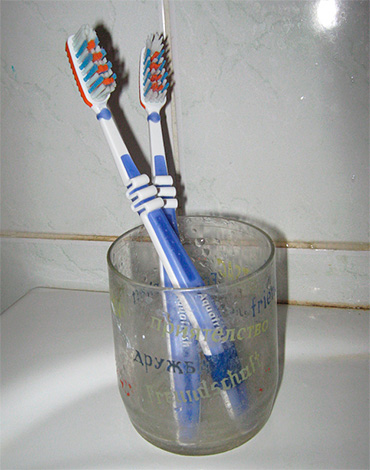
In conclusion, it is worth noting that there are many much more significant factors affecting the appearance of caries in an adult and baby than banal kisses. And the fear of contracting caries or passing it on to someone should not be an excuse to give up kisses in general.
Take care of your teeth, take care of them and live a full life!
Interesting video: is it possible to get caries and how it happens
How to treat tooth decay without a drill
Effective methods for the prevention of carious processes

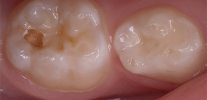
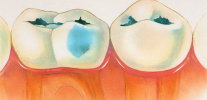
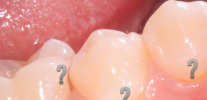
Bullshit full - that supposedly all people have carious bacteria, but for some they do not work. Caries is either present or absent, and the bacterium is transmitted from the carious to the healthy. And it must be urgently removed, bleach, antibiotic.
And in healthy people there are no carious bacteria. So the concept of "kiss your health" is no longer. Alas.
Really. The more you kiss, the more caries. If everything is fine with memory, then any person will say that since childhood, even after the most harmless kisses with closed lips, caries soon developed. Moreover, the closer the contact to the microflora, the stronger the further manifestation.
Kiss in the kindergarten on the lips - meet caries. Kiss on the threshold of maturity in a hickey - meet pulpitis and crowns. Kiss constantly and with everyone in a row - get ready for implants.
Yes, caries is contagious, just like syphilis and other diseases! Moreover, time will pass, and scientists will prove that cancer is also contagious. 100 years ago it was proved by one scientist in his own body that a stomach ulcer is an infectious disease and is treated with the usual trichopolis, but for some reason they just remembered about it.